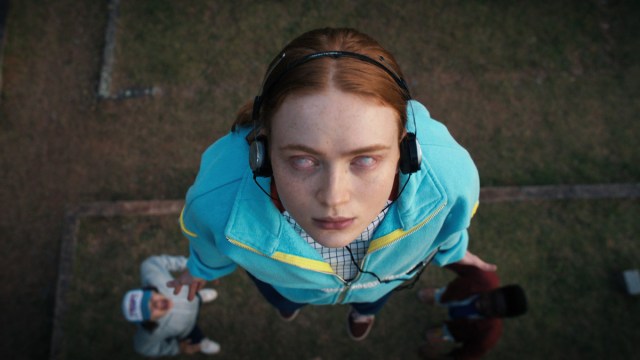My five-year-old son sits at a table after Sunday school, drawing an elaborate picture of what appears to be half-man, half-monster.
“That looks great, honey,” I say, admiring his work with his teacher beside me. “What is it?”
“A serial killer,” my son replies without a change in tone. His teacher raises her eyebrows. I turn to offer an explanation: “We’ve been watching Stranger Things,” I say. “Vecna. You know, Vecna? He’s a serial killer.”
My husband and I grew up in conservative, Evangelical homes. We often joke about how many cultural references we miss because of the strict rules our parents had about television consumption. Scooby-Doo? Banned because of ghosts. Rugrats? Censored due to the glorification of childhood disobedience.
But my husband and I are raising our son with different standards. We’ve noticed that allowing him to watch scary shows has not filled him with fear, but with creativity and curiosity. We’re open to our children consuming entertainment that portrays the world as a complicated place that isn’t just filled with sunshine and roses.
This decision is not something we push on our son: He is drawn to the surreal; he is not prone to nightmares.
Before bed, he asks me to tell stories, fictionalized narratives featuring his favorite stuffed animal, Peter Rabbit, foraging in our back garden for carrots and French beans. I put my heart into these tales—with elaborate dialogue, drop-in appearances from neighbors, plot twists, and thorough description of setting.
“Did you like that?” I ask after my conclusive the end.
“Yes,” he replies. “But next time—make it spookier.”
It feels natural, then, to allow my five-year-old son to join my husband and me for our favorite supernatural dramas, despite the fact that Stranger Things is rated TV-14. I’ve tried to sell him on series more specifically targeted to children, but he’s wise to these knockoffs. He wants adult fare.
Related: Neil Patrick Harris Watches Horror Movies with His 11-Year-Old
While Stranger Things may not be right for every young child (and probably isn’t for most), because of his interests and personality, we invite him to watch it alongside us. On the couch, he snuggles up close as Max Mayfield listens to the music of Kate Bush repetitively to ward off the intrusive thoughts that make her vulnerable to evil.
“I love this song,” he whispers into my ear.
“I do, too,” I reply. I wonder if he can relate to her predicament—the fear of one’s own mind—as I can.
The music continues. Vecna is in hot pursuit of his next victim. I turn to my son’s round, fresh face in the dark: “Does this scare you?” I ask.
Usually, he says no to this question. But this time, he says simply, “I like to be scared.” And this could alarm me. I could disbelieve him, in the way I am often not convinced he actually “likes to be cold” when he refuses to wear a jacket on a brisk day.
But I consider what he’s telling me. I wonder if what he’s really saying is that he likes to feel. He likes to be taken for a ride—the highs, the lows. He is interested in the scope of the human condition. Because even though he is a child, he is still a human with complex emotions. He can detect the lack of authenticity in neat and tidy narratives, too.
When I make parenting decisions, I try to ask myself this question: Is this what I think is best for my child? Or am I making this decision because I am afraid of the judgment of others?
I’ve decided that parenting out of fear of judgment is scarier than Stranger Things ever could be. So, we continue to sit down for spooky shows. Right now, we are enjoying The X Files together. I am filled with nostalgia, despite having never been allowed to watch the show during my own childhood.
Sometimes, my son colors pictures while we watch TV together.
“What’s that?” I ask one evening as I peer over his shoulder to see a box filled with scribbles.
“A television,” he says. “But it’s on fire.”
This, I think, is just the sort of unsanitized perspective that will help him take on the challenges of our complicated world—and of his own mind.
